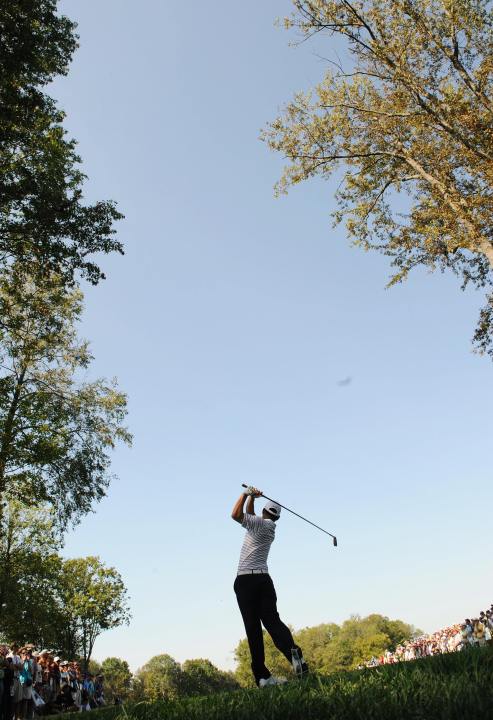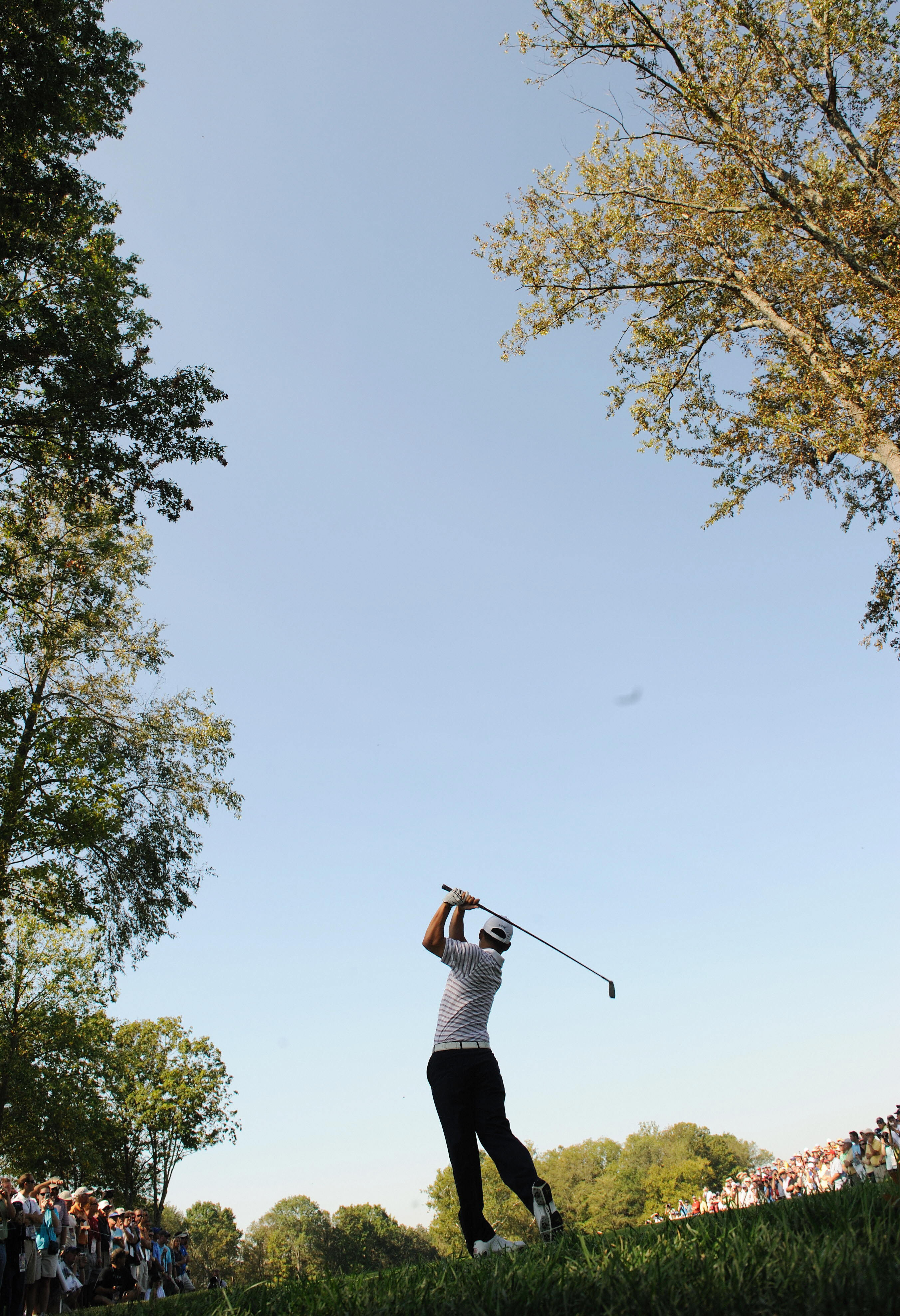 We’ve all been there: the first tee, the dimpled white orb sitting serenely on its throne, the shimmering green fairway, sirenlike in the distance. We’ve all felt the weight of the club in our one-gloved grip, the flex of the shaft; envisaged the crack and ping of contact.
We’ve all been there: the first tee, the dimpled white orb sitting serenely on its throne, the shimmering green fairway, sirenlike in the distance. We’ve all felt the weight of the club in our one-gloved grip, the flex of the shaft; envisaged the crack and ping of contact.
The 37th Ryder Cup starts today and that exact same feeling of expectation will be experienced by each of the European elite as they take on the much-scorned might of American golf.
Of course, I had to stop the personalised introduction at a rather crucial place for it to have any validity, as after that point the comparison quickly wanes. Whereas the performances at Valhalla will doubtless fuel our self-delusion, the lowly amateur might expect, in decreasing order of embarrassment to a) thunk out a large divot in front of the tee, b) shank the ball wildly into some bush, or at best c) make delectable contact only to lose the ball in grey sheet clouds “Did anyone see where mine went?”.
The Ryder Cup is a rare thing, offering as it does, a chance to beat the Americans at a sport which they really do play. Ordinarily the USA lives in a sporting world of its own, in both senses of the expression: they only play their own sports, and they play them extraordinarily well. So, even if we were able to understand the rules of, oh I don’t know, NASCAR Racing or Candlepin Bowling, we’d still lose by a hefty margin. Meanwhile, real sports, man’s sports like Cricket, Rugby League or even Kabaddi, are left by the wayside.
Golf however is the great redeemer. The Yanks love their golf, and with half the world’s top ten they make good claim to being world number one. So when a tournament comes around that in principle should allow them to demonstrate this, it’s doubly satisfactory to beat them.
Of course it’d be nicer if it were just us Brits that did the beating, but those days are behind us. Indeed, it’s a matter of debate as to whether they were ever with us in the first place. Before Europe was introduced as the main competitor, Great Britain played the USA a total of 22 times (thrice with the help of Ireland). We lost eighteen times and tied once. That’s three victories in nearly half a century. The Ryder Cup was little more than an American vanity project where Great Britain was offered up as a biennial whipping boy for some post-colonial payback. And that’s no good. Change was needed.
Maybe this is the approach we should take in understanding Nick Faldo’s team. Faldo has never been a charming man, he’s famously made admirers where others make friends, so to have expected him to turn into a bashful, sporting gent when given the team leadership was a nonsense. He plays to win, and sentimentality is the first victim of such an attitude. It is a great shame that Monty won’t be competing this year, however, part of me can’t help thinking that although he will be missed, it will be as a Ryder Cup great. Should he have played and failed, as his unremarkable form suggests, it would have been a much sadder farewell. Instead, in selecting neither him nor Darren Clarke, Faldo has opened the door for a younger generation: he has selected his team with one eye on the future.
Of course, sentimentality has a valuable place in sport, as one of the most endearing Ryder Cup gestures illustrated back in 1969 when Jack Nicklaus lifted Tony Jacklin’s two foot marker with the immortal words: “I don’t think you would have missed it, but I don’t want to give you the opportunity.” It was a deed from which many can still learn, that showed the mark of a great sportsman, but let’s not overlook the fact that the resulting tie ensured the USA retained the trophy.
As it stands, Europe lead USA 7 to 6 with one tie. With such close-fought battles, the competition has taken on unparalleled levels of suspense. This year, coming off three consecutive defeats and without the megalith of Tiger Woods, the Americans see themselves as underdogs. Instead of world-ranking induced complacency there’s an awareness that it’ll take an epic team performance to win. On home soil, this change in attitude could prove decisive.
Whatever happens, when that first ball flies off the tee, leaving behind a swishing blur of pastel trousers and buttoned-up diamond prints, the electricity will be palpable, and not just because of all the nylon. The Ryder Cup is a platform for individual moments of greatness, where the stakes are higher than financial gain, and the overriding deciding factor is a positive team spirit. Is it any wonder it makes for some of the best televised sport around?







Comments